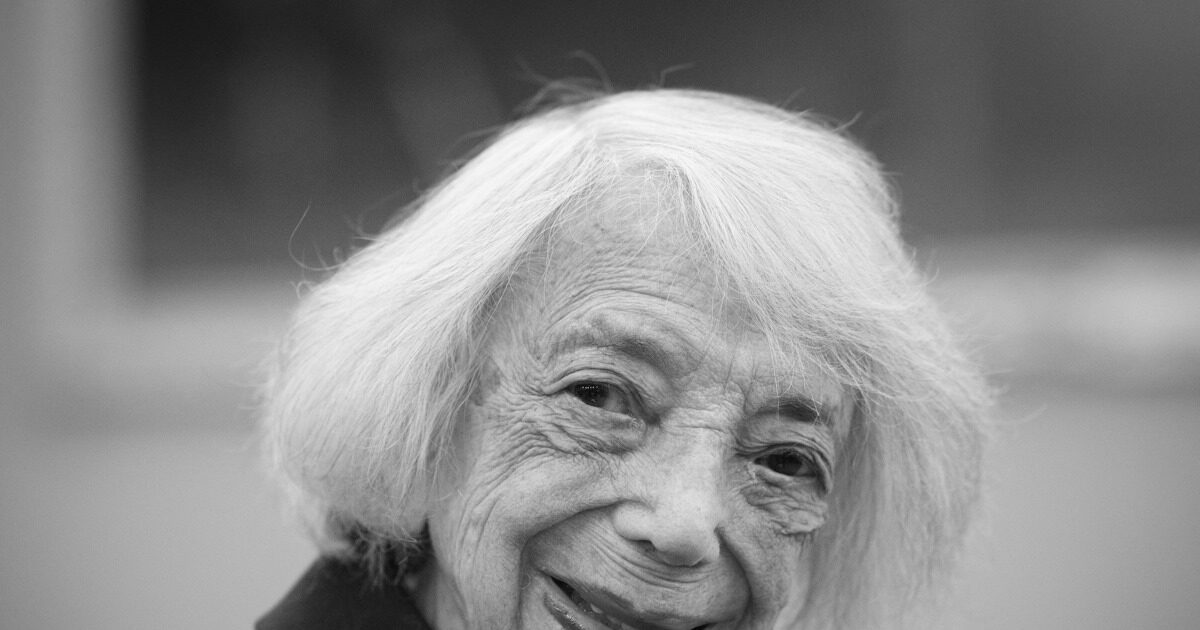Margot Friedlender – I survived Nazi Holocaust and prominent voice in modern Germany – Died on Friday (09.05.2025) at the age of 103.
She had returned to Germany after decades as an immigrant in New York to devote her life to raising young people about the crimes of the national socialists. Friedlender spent part of the years of the war hidden in Berlin before being transferred to the Teresistad concentration camp in 1944, where he witnessed the Holocaust.
Margot Friedlender was born in a Jewish family in Berlin in 1921. Her mother and brother were murdered in Auschwitz’s concentration camp and she was arrested and sent to the Camp of Terezenstad (Terzin). She finally survived, as did her future husband, with whom she later went to the US.
In 2010, at the age of 88, Friedlander returned to Germany and was dedicated to informing young people, especially in the context of a school program for the historical memory named after her: “My mission is to say ‘be human’. We are all the same. There is no Christian, Jewish, Muslim blood. There is only human blood, “he often said. He visited countless schools and encouraged young and old “not to allow what happened then”.
Her words, “be people”, have moved millions of people around the world. “Until the end, he urged the defense of democracy – memory is not enough on its own,” the Margot Frydlander Foundation said in a statement.
Last summer it became a cover in German Vogue as a symbol of hope and a source of inspiration, and once again talked about her “mission”: “I want to share my life with younger generations and warn of rising far -right and anti -Semitism. To remind me of the importance of memory and humanity, “he said.
“Everyone knew it and looked elsewhere”
After returning to Germany, Friedländer gave numerous speeches and visited many German schools to talk to children and young people.
“I often wonder if the return here was the right thing,” Friedlender said in the documentary “A Long Way Home”, a 2010 documentary.
He had not regretted returning to Berlin, even though friends and relatives in the US tried to persuade her. “I could never imagine that I would go back to these pigs,” her cousin in the documentary on Margot Friedlender said. “I came back to talk to you and stretch out your hand. Because I wanted you to be the eyewitnesses of the time that we can no longer be, “he answered anyone who expressed his question about his return to Germany.
He had even admitted that he felt uncomfortable emotions towards some Berliners: “I still be very cautious about the people of my generation I meet here. They were the ones who cheered the Nazis back then. And they did nothing to stop what was happening. Everyone knew it and looked elsewhere. Although I came back, it’s still something that affects me very deeply. “
Marriage with another Holocaust survivor
Friedlender spent 15 months hidden in Berlin, protected by non -Jewish Germans. She did not learn about the deaths of her family in Auschwitz, much later. In the spring of 1944, he met a patrol of the so -called “thieves” – Jews who were forced to identify and publish other Jews on behalf of the Nazi SS.
This led to her imprisonment at the Terezenstad concentration camp, where she managed to survive until the fall of the Nazi regime in May 1945. After the liberation, she married a man who was also in the camp and the two left for the US in 1946.
Her husband died in 1997, without again walking his foot in Germany. In an interview, she said that the memories of the Germans who helped were an important factor in the decision to return to Berlin.
“And the Germans were people. They hid me, shared their bed and their food with me, “he said. “There were people who did not turn their eyes, who did something that could have cost their heads.”
In recent years, Friedlender has been honored with many state awards as a prominent voice of memory. He also founded the Margot Friedlender Foundation in 2023.
“Margot Friedlander donated to our country the reconciliation-despite the Germans when they were young,” federal President Frank-Walter Steinmeier said for her death, while Bundestag President Julia Klekner said to a “martyred man”.
Chancellor Friedrich Mertz described Margot Friedlender as “one of the strongest voices of our time for peaceful coexistence, against anti -Semitism and oblivion”. She trusted her story, “it is our duty and obligation to continue it,” the Chancellor added.
